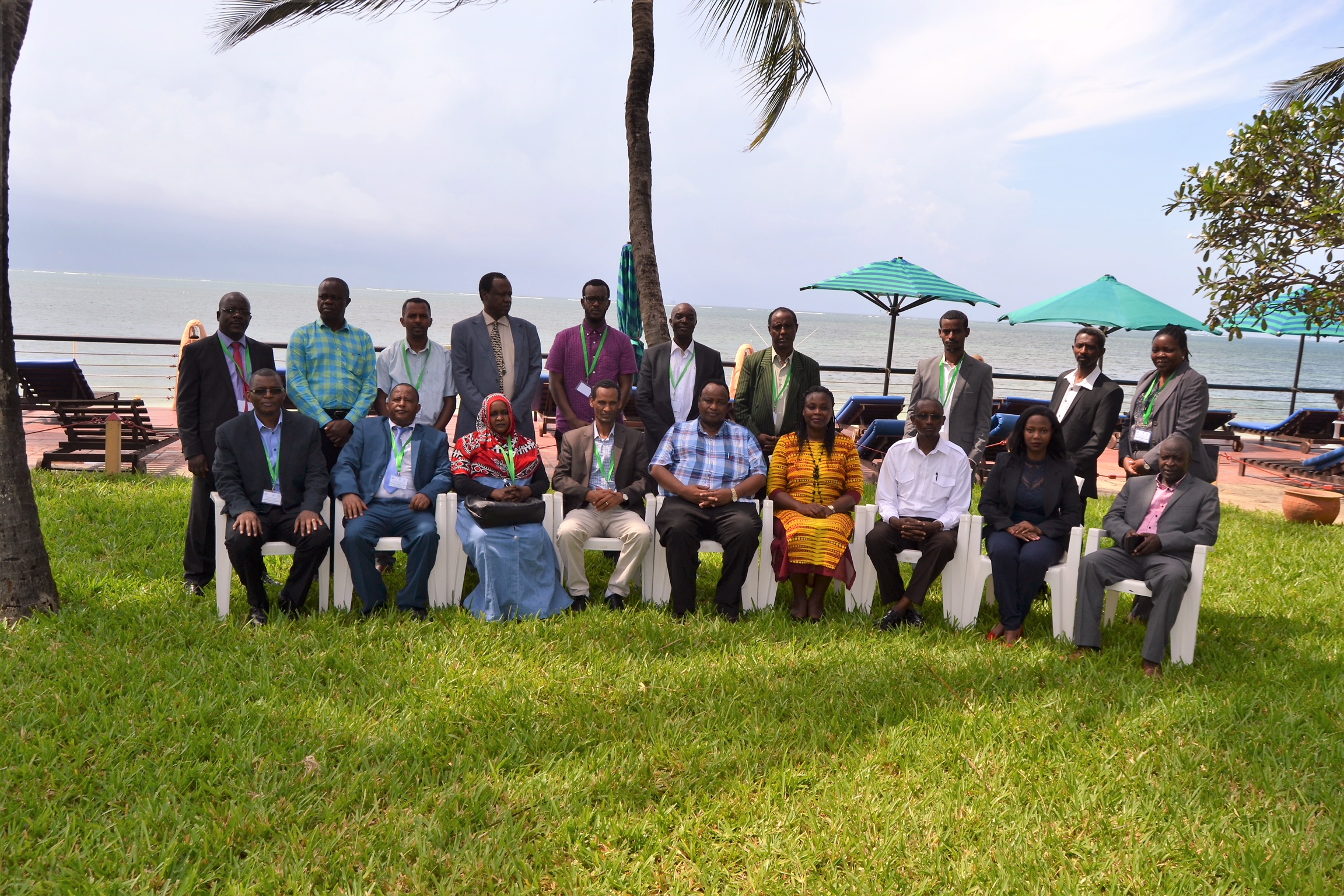Mombasa, Kenya, 24-25 April 2018. In a workshop organized by the IGAD Centre for Pastoral Areas and Livestock Development (ICPALD) in collaboration with the IGAD land governance project, IGAD member states called for the establishment of a Pastoral Land Governance Platform.
In his opening remarks, Dr. Muchina Munyua, the Director of the IGAD Centre for Pastoral Areas and Livestock Development indicated that “80% of conservation areas in the IGAD region are in pastoral areas. If maps were overlaid with conflict and resource maps, it will be clear that no land has been left for pastoralists. That is why it is important to secure their tenure rights in light of the newly discovered natural resources especially minerals, oil and gas as well as the infrastructure developments”. He further called upon Member States to adopt inclusive consultative processes in developing policy frameworks on pastoralism in order to ensure that pastoral communities are involved in decision making on matters that affect their livelihoods. While recognizing the different stages at which the Member States are in the development of frameworks to secure pastoral tenure, Dr. Munyua appreciated progress made so far and encouraged member states to share experiences towards harmonized regional frameworks to promote pastoralism.
The meeting was attended by 22 participants from Ethiopia, Kenya, Sudan and Uganda representing land commissions, Departments for land registration and land use planning in the Ministries responsible for land administration, livestock departments. The African Land Policy Centre and Swiss Development Cooperation were represented at the meeting facilitated by IGAD with funding from the World Bank. The objective of the workshop was to enhance land policy convergence among IGAD member states with the aim of promoting sustainable development of pastoralism. Updates from Members States about the development of policies, legislation and institutional arrangements to support governance of pastoral lands in the areas of land use planning, recognition of tenure rights of pastoralists and rangelands management were given with synergies for future actions drawn.
Coordinated land use planning coupled with low recognition of the role of traditional institutions has hampered mobility of pastoralists in the IGAD region. Dr. Dereje Tadesse Wakjira from IGAD further emphasized on the role that land use planning plays in facilitating sustainable rangelands management, regional mobility for pastoralists and prevention of conflicts over grazing and water resources. Dr Wakjira indicated that “…pastoralism thrives from mobility, therefore Member States are encouraged to speedily implement the IGAD Transhumance Protocol in order to facilitate mobility”.
During a presentation on land governance in the context of pastoralism, Mackay Rigava from the African Land Policy Centre called upon Member States to use the AU Policy Framework on Pastoralism, the Framework and Guidelines on Land Policy in Africa and the Voluntary Guidelines on the Responsible Governance of Tenure as key reference documents for pastoral policy development. Rigava added that “The protection of pastoral ecosystems will require policies that address issues of tenure security, the role of pastoral communities in pastoral management, guarantee equal access to pastoral resources for women and other vulnerable groups, establish processes for the resolution of cross-boundary disputes, and improve technologies of resource use”.
Presentations from Member States demonstrated the political will and commitment to promote pastoralism through development of responsive policies; legal and institutional frameworks that secure tenure rights of pastoralists and promote participation of pastoral communities in decision making processes. Participants to the two day workshop agreed that there is an urgent need to review their policies impacting pastoralism, in accordance with the AU Policy Framework on Pastoralism, with a view to developing comprehensive policies which take into account the peculiar needs of pastoralism; and to build adequate human, financial, and technical capacities to support pastoral policy development, implementation and tracking progress.
At the close of the two day workshop, IGAD Member States called for the establishment of a multi-stakeholder Pastoral Land Governance Platform comprising of government, academia, civil society, agricultural producers and pastoral associations. The Member States called on the African Land Policy Centre and the AUC to provide support in the establishment of the Platform and to raise awareness on the frameworks and tools available to support the enhancement of pastoral land governance at member states level in the IGAD region.

